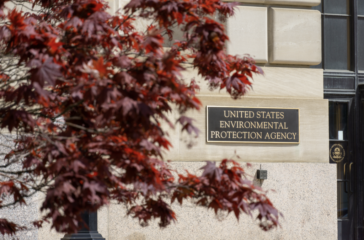Corrupt politics, not science, power the US EPA
By Evaggelos Vallianatos
When I started my job in the Office of Pesticide Programs at the US Environmental Protection Agency (EPA) in 1979, many things quickly surprised and disappointed me – a pattern that persisted through my 25-year career there.
The first thing that astonished me was the scandal that came to light with the giant Industrial Bio-Test Laboratories (IBT). People would whisper in the corridors about fake lab studies. They would wonder aloud about the safety of our food. IBT was the country’s largest testing lab for drugs and pesticides, conducting toxicology studies for companies such as Monsanto until investigators discovered widespread fraudulent manipulation of test data. The US Department of Justice successfully prosecuted multiple IBT officials for fraud, and has caught others who similarly engaged in fraud to ensure approvals for risky products.
I learned the IBT story from Adrian Gross, a colleague in the EPA Office of Pesticide Programs. (Gross died in 1992.) We spent hours talking about the science and political corruption that often accompany the regulation of pesticides. Gross would speak of “cut-and-paste” science, in which studies the EPA relied on included passages simply copied from materials developed by the companies seeking approval to sell their risky products.
Over the time I worked at the EPA, I became convinced that the agency was serving industry much more than the public. My attempts to discuss concerns with supervisors made no difference, save for intensifying hostility toward me.
 EWG
EWG